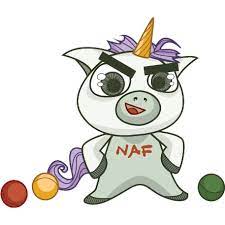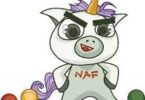Hi everyone, this post will be more personal and serious than usual. Content warning: I will be talking about suicide, trauma, and grief. Please take care of yourself, and skip this post if you need to.
Over the past two months I have been struggling with the suicide death of a friend. She was a nonprofit professional and social justice activist. She was 30 and had been battling depression and anxiety and suicidal ideation for most of her life. A traumatic childhood led her to cutting ties with her family at a young age and being homeless for several years. Despite various challenges, she got a master’s degree, became an educator, and dedicated years of her life to advancing social justice through her nonprofit and community work, affecting the lives of many people, especially the numerous kids she taught and mentored.
Grief does a number on you, and grief when someone dies of suicide brings different feelings of guilt and regret. I run through various scenarios of what I could have said and done. Maybe if I hadn’t stayed up so late the previous night, I wouldn’t have slept through the last time she tried to call me. Maybe if I had invited her over for Christmas, she wouldn’t have spent it alone, and things might have been different. Until recently, I sometimes woke up, and unable to sleep, scanned through our text threads. Some of the messages were happy: trading vegan recipes, discussing TV shows. Others involved us arguing over various things. The later ones were of me begging her to get professional help. She had bought a gun, and I and her other friends couldn’t convince her to get rid of it. The last text she sent me was “I’m sorry. Goodbye.”
My friend was just the latest person in our field who died by suicide. In Seattle, the loss of a brilliant and beloved activist of color at the beginning of the pandemic sent waves of shock and sadness. Last month, a friend told me of yet another person who ended her life. On Twitter, a respected activist I follow spoke openly about dealing with suicidal ideation. The mental health challenges, lack of support and resources for, and suicide death of those who seek to advance social justice, to create a better world, is something that affects us all.
We don’t want to talk about suicide, but we need to. Suicide rates have overall increased 40% over the past two decades. And like everything else, it is worse for people of marginalized identities. According to this article, “Among individuals between the ages of 25 and 44 years, the suicide rate rose by 5% overall and by nearly 34% for American Indians or Alaska Natives from 2018 to 2021. It rose by more than 19% among Hispanic persons in that age group, by approximately 23% among Black people and by nearly 21% among multiracial individuals.”
According to a report released by The Trevor Project, about half of trans and non-binary youth consider suicide. And disabled people are at significantly higher risk of suicide than non-disabled people. People who are poor, as well as older adults also face increase risk of suicide.
I don’t think it is surprising that the suicide rates are disproportionally high among people of color, trans people, nonbinary people, disabled people, low-income people, and older adults. The barrage of hatred and injustice we’ve seen, especially over the past few years, has been relentless. There has been so little shelter, so few places where marginalized people can just safely exist.
Suicide among nonprofit professionals and social justice activists, needs to be recognized as an issue. Many of us entered this line of work because we have dealt with trauma in our own lives. We have seen and felt firsthand the effects of injustice, and it drove many of us into the field. Our traumas make us more empathetic and often more effective. As my friend said, “For me, it’s always come down to feeling like this world wasn’t designed for me—socially, physically, structurally, systemically. As such, I’ve long been obsessed with how to structurally solve loneliness, hopelessness, despair, and other difficult, pervasive feelings.”
But this empathy and drive can also be too much, as we are constantly retraumatized by seeing others being beaten down by unjust systems as we do the work each day. And we often feel helpless, that our efforts often do not make that big a difference, that the tide is often too strong for us to abide, that the arc of justice is too long for us to bend in our lifetimes. It is deeply demoralizing.
Over the past few years, I have also been seeing leaders demoralized by the very people and systems who are supposed to be allies and partners in our work. Funders who continue burdensome and ineffective practices. Donors who care more about their “legacy” and whether they receive the appropriate amount of gratitude and hero-worship. Board members and supervisors more concerned about their power and authority than in creating a better world. And an entire sector that prioritizes playing nice with the very forces that have been successful in making the world less just and equitable.
People in our sector are exhausted and on the breaking point. I know many of you are. We must talk about suicide and do something about it because I am afraid the rates among people in our profession will only increase if we continue to neglect it. We will continue to lose people. We will continue to lose their vision and voice. Their joy and humor and strength.
…









